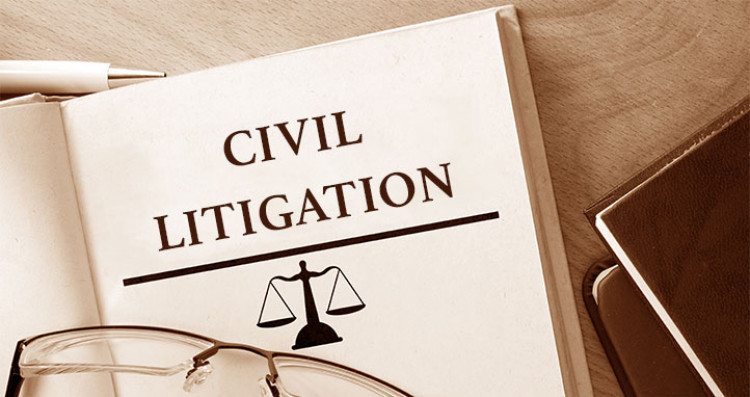Conclusion / Resolution of Court Proceedings
Published on 21st April, 2017 by Mark Lee

Conclusion / Resolution of Court Proceedings
What is the lifespan of a trial?
In our previous articles, we discussed how one may commence Court proceedings and the immediate steps that follow (e.g. the filing of the Statement of Claim, Defence and Reply to Defence).
Generally, Court proceedings are commenced with a view for the dispute to eventually be heard and decided by a Judge at a trial.
It suffices to state that the duration between the time from when a party first commences Court proceedings (i.e. the filing of the Writ of Summons) to the time that the matter is eventually heard by a Judge at trial is by no means insignificant.
In the interim, substantial work will have to be undertaken in relation to the documents disclosure stage, preparation of witness statements, trial preparation, etc.
The corollary to the aforesaid is, of course, that the longer the dispute remains, the higher the legal costs involved for parties.
In this article, therefore, we explore the various circumstances and avenues available to parties of a Court proceeding to end / conclude / resolve the matter without having to go to trial.
Interlocutory Applications
For now, it ought to be explained that once Court proceedings have commenced, parties have the right to make / file various “interlocutory applications” (i.e. mini-battles) before the final trial (the war). We will be exploring some of these interlocutory applications below.
Methods to Dispose of an Action Without Trial
Depending on whether a party to a Court proceeding is the Plaintiff or Defendant, the following are some avenues that one can consider, including but not limited to:-
a) Private Settlement; At any time before the trial (and even during the trial but before final judgment is rendered), parties can attempt to reach a private settlement to resolve the dispute. Assuming a settlement can be reached, parties will file a Notice of Discontinuance to formally end the Court proceeding. It is of course advisable that parties try to settle their differences sooner rather than later to avoid incurring unnecessary legal costs.
b) Default of Appearance; if the Defendant(s) fail to enter an appearance by the stipulated deadline, the Plaintiff may enter default judgment against the Defendant(s) (Order 13, Rules of Court).
c) Default of Defence; if the Defendant(s) fail to file its Defence within the stipulated deadline, the Plaintiff may enter default judgment against the Defendant(s) (Order 19, Rules of Court).
d) Summary Judgment; if the Defendant has entered appearance and filed a Defence, but it is clear that the Defendant has no real Defence to the claim, the Plaintiff may apply to court for summary judgment against the Defendant (Order 14, Rules of Court).
e) Determination of Questions of Law or Construction of Documents; The Court may, upon the application of any party or of its own motion, determine any question of law or construction of any document arising in any cause or matter where it appears to the Court that — (a) such question is suitable for determination without a full trial of the action; and (b) such determination will fully determine (subject only to any possible appeal) the entire cause or matter or any claim or issue therein. (Order 14, Rule 12 of the Rules of Court)
f) Striking Out of Pleadings & Actions; Pleadings or actions may also be struck out summarily by any party. An application to strike out any pleading or part thereof, may be made if it discloses (a) no reasonable cause of action or defence and/or (b) is scandalous, frivolous or vexatious and/or (c) tends to prejudice, embarrass or delay the fair trial of the action and/or (d) is otherwise an abuse of the process of the court. (Order 18, Rule 19 of the Rules of Court)
Offer to Settle (Order 22A of the Rules of Court)
Whilst parties may attempt to privately settle their differences, it is not uncommon for parties to officially broach the issue of settlement vide a formal “Offer to Settle”.
A benefit of issuing a formal “Offer to Settle” relates to the question of costs.
For instance, where an offer to settle made by a Defendant (a) is not withdrawn and has not expired before the disposal of the claim in respect of which the offer to settle is made; and (b) is not accepted by the Plaintiff, and the Plaintiff obtains judgment less favourable than the terms of the offer to settle, the Plaintiff is entitled to costs on the standard basis to the date the offer was served and the Defendant is entitled to costs on the indemnity basis from that date, unless the Court orders otherwise.
Simply, A offers to pay B S$1mil to settle a dispute but B rejects the offer and insists on going to trial. At trial, B wins but is only awarded S$200,000 by the Court. If so, B will be made to suffer certain cost penalties for being foolish to have rejected the Offer to Settle.
One rationale for this approach is that B is deemed to have “acted unreasonably throughout the proceedings resulting in wastage of resources, time and costs”. (CCM Industrial Pte Ltd v Uniquetech Pte Ltd [2009] 2 SLR 20)
For enquiries, you may contact our directors below:-
Mark Lee
Email: mark.lee@wmhlaw.com.sg
Profile: http://www.wmhlaw.com.sg/core-team/mark-lee
Wilbur Lim
Email: wilbur.lim@wmhlaw.com.sg
Profile: http://www.wmhlaw.com.sg/core-team/wilbur-lim
For full article, please download the PDF below.
